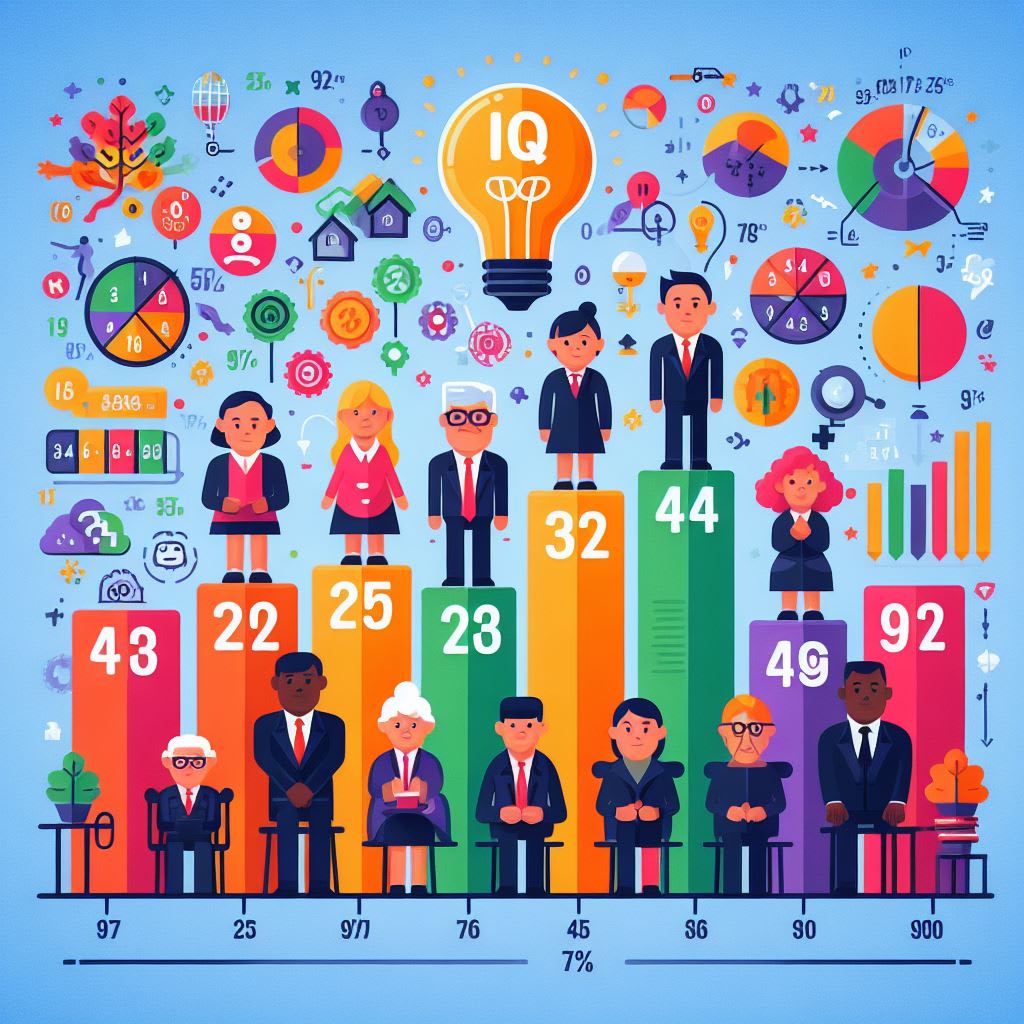What Is An Average IQ Score By Age?
Average IQ Score By Age

In today's rapidly advancing society, intellectual ability plays a crucial role in determining one's success and achievements. IQ, or Intelligence Quotient, is a measure of an individual's cognitive abilities and has long been a subject of fascination and study. Understanding what constitutes an average IQ score by age can provide valuable insights into the development and capabilities of individuals at different stages of life.
What is IQ?
Before delving into average IQ scores by age, it is essential to understand what IQ measures. IQ is a standardized test that assesses a person's cognitive abilities about their age group. It is designed to evaluate various aspects of intelligence, such as logical reasoning, problem-solving skills, memory, and verbal comprehension. IQ scores are typically distributed along a bell curve, with the majority of the population falling within the average range and fewer individuals at the extreme ends of the spectrum.
Interpreting IQ Scores
IQ scores are interpreted based on a scale that takes into account the distribution of scores in the general population. The average IQ score is set at 100, with a standard deviation of 15 points. This means that approximately 68% of the population falls within the range of 85 to 115, which is considered to be the normal distribution of intelligence. Scores below 85 are considered below average, while scores above 115 are considered above average.
Average IQ Scores by Age
It is important to note that IQ scores can vary significantly across different age groups due to the complex and multifaceted nature of intelligence. While IQ is known to be relatively stable throughout adulthood, it is common for scores to change during childhood and adolescence as individuals develop and mature.
Infancy and Early Childhood (0-5 years)
IQ testing is not typically conducted during infancy and early childhood, as cognitive abilities are still in the early stages of development. However, researchers have found that the foundation for cognitive skills is laid during this period through interactions with caregivers and exposure to stimulating environments.
Childhood (6-12 years)
During childhood, IQ scores may start to become more stable and predictive of future intellectual abilities. Factors such as education, parental involvement, and socioeconomic status can have a significant impact on IQ scores during this critical period of development.
Adolescence (13-19 years)
Adolescence is a period of significant cognitive growth and change, as the brain undergoes rapid development and maturation. IQ scores during this stage may fluctuate as individuals navigate the challenges of adolescence and begin to solidify their cognitive abilities.
Adulthood (20+ years)
By adulthood, IQ scores are generally considered to be more stable and indicative of a person's intellectual abilities. However, it is important to remember that intelligence is a complex and multifaceted concept that cannot be fully captured by a single test score.
Factors Influencing IQ Scores
It is important to recognize that IQ scores are influenced by a wide range of factors, including genetics, environment, education, and cultural background. While IQ tests can provide valuable insights into an individual's cognitive abilities, they are not the sole determinant of intelligence or potential.
Conclusion
In conclusion, understanding average IQ scores by age can offer valuable insights into the development and capabilities of individuals at different stages of life. By recognizing the complex and multifaceted nature of intelligence, we can appreciate the diversity of cognitive abilities present within the population. IQ testing remains a useful tool for assessing cognitive abilities, but it is important to interpret scores within the context of individual differences and the various factors that influence intellectual development.
Remember, intelligence is not fixed or predetermined, and each individual has the potential to learn and grow throughout their lifetime. By fostering a supportive and stimulating environment, we can help individuals reach their full intellectual potential and contribute positively to society.
About the Creator
IQ Metrics
IQMetrics.org is a comprehensive platform offering insightful resources on IQ testing, assessments, and understanding intelligence metrics.
http://iqmetrics.org






Comments
There are no comments for this story
Be the first to respond and start the conversation.